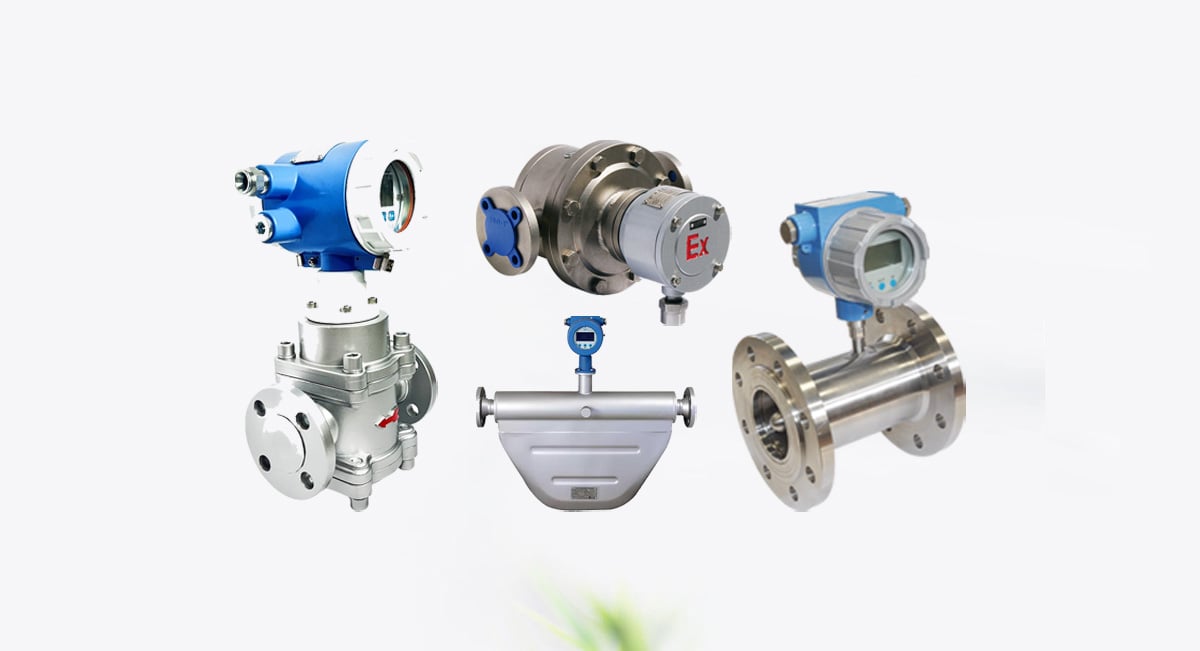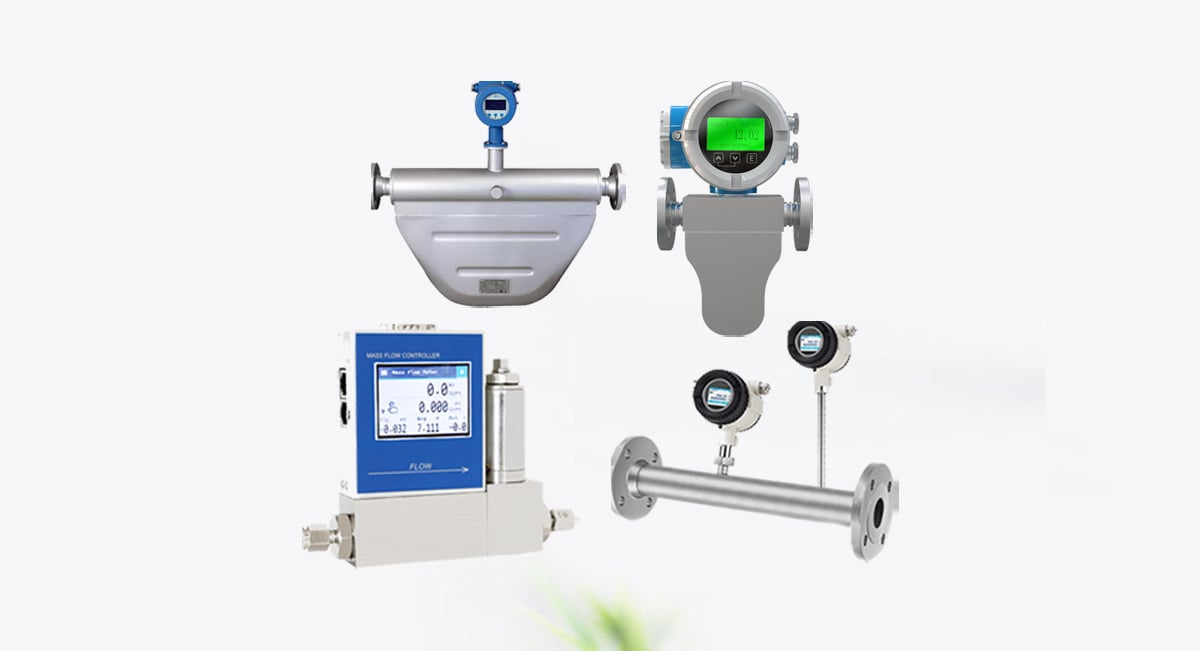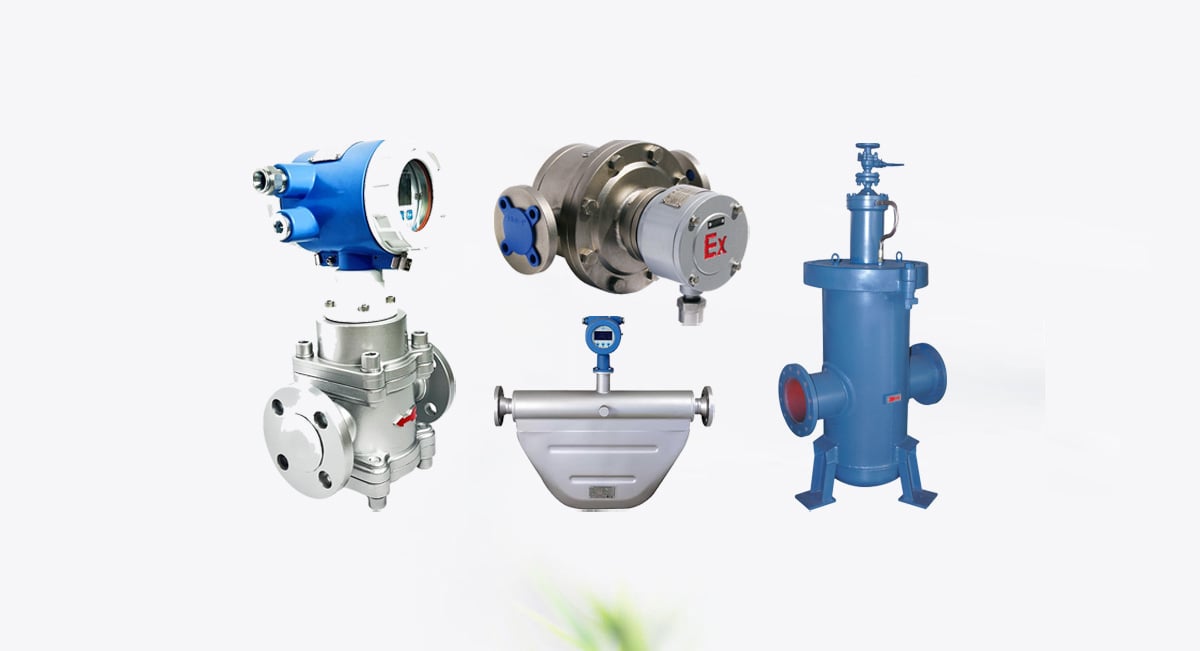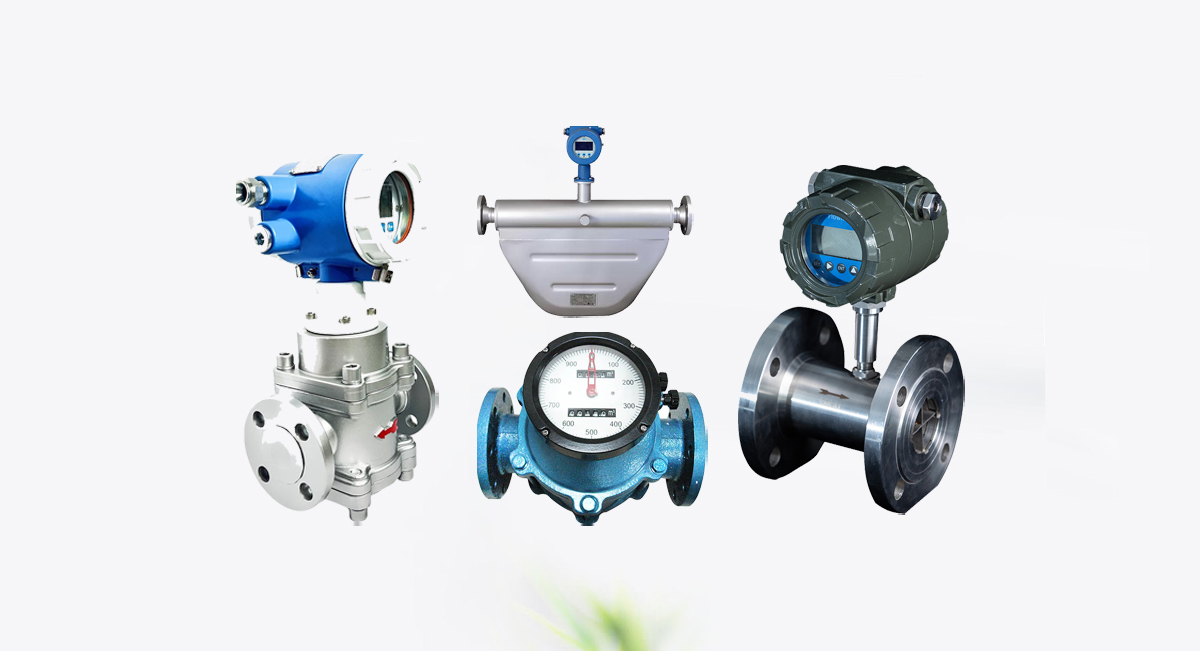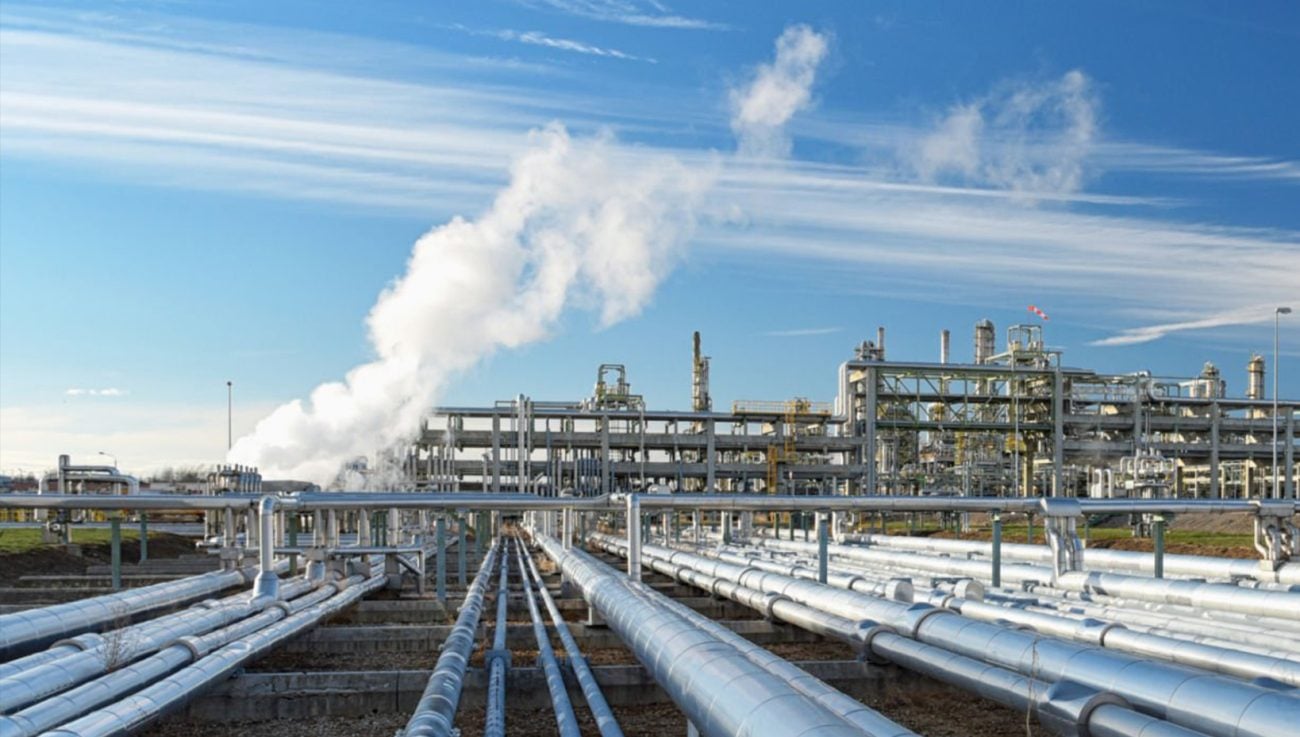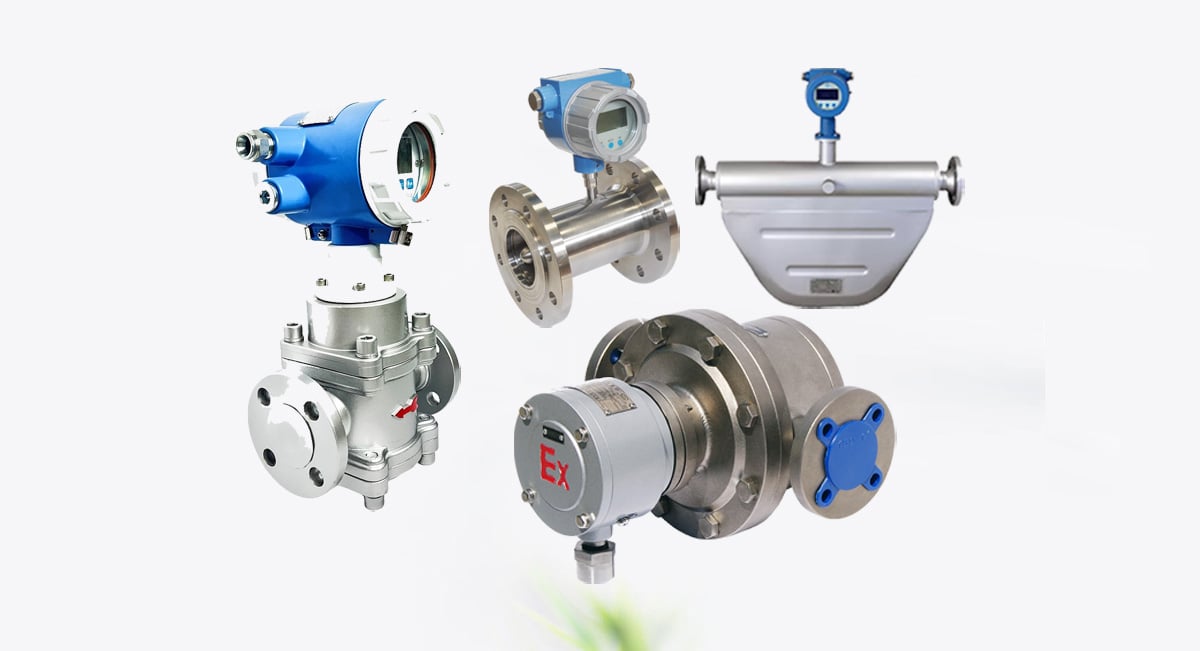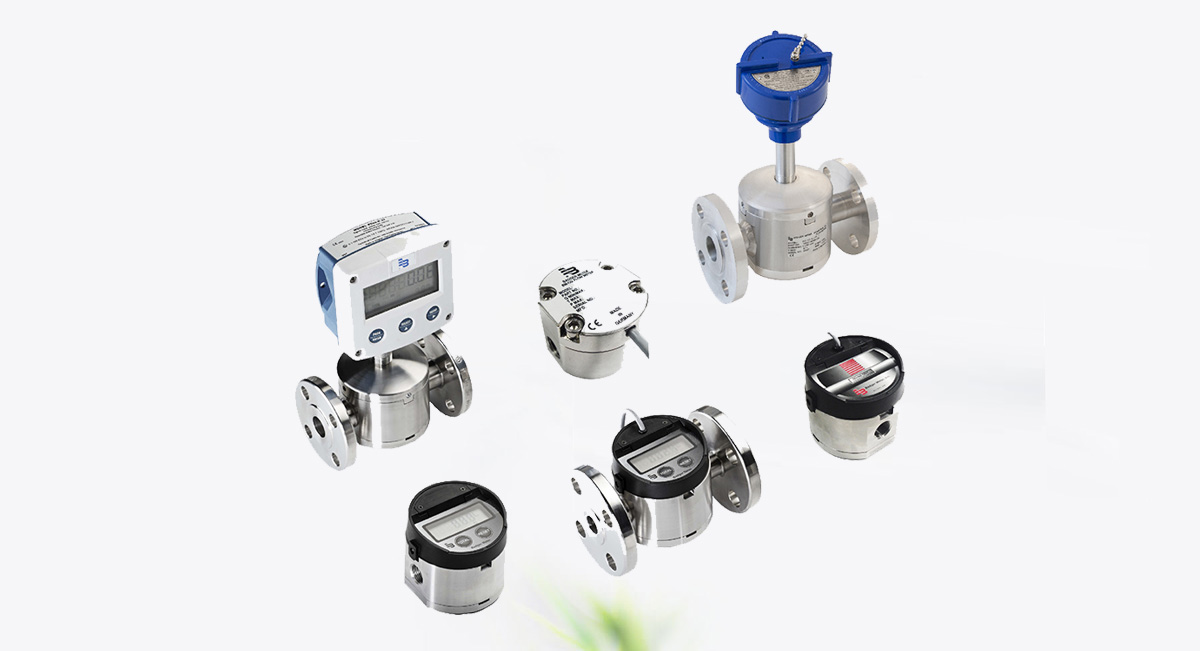What Is Fuel?
Fuel is any material that can store potential energy and release it through combustion or another chemical reaction to produce power. It is the essential energy source for engines, power plants, industrial furnaces, and heating systems. Fuels exist in various forms liquid, gaseous, and solid, and each type has different chemical properties, viscosity, and energy density, which influence how it is stored, transported, and measured.
Accurate fuel measurement is crucial because even a small error can lead to significant financial losses, process inefficiencies, or equipment malfunctions. That’s where yakıt akış ölçerler devreye girer.
İçindekiler
Types of Fuel
Liquid Fuels
Common liquid fuels include diesel, gasoline, kerosene, jet fuel, biodiesel, and heavy oil.
- Diesel: High viscosity, commonly used in industrial engines and generators. Measurement challenges include temperature-dependent density changes and potential air bubbles.
- Benzin: Low viscosity and volatile, requiring precise sealing and vapor management in flow measurement.
- Kerosene and Jet Fuel: Require high accuracy and cleanliness; contamination can affect performance.
- Biodiesel: More viscous and may contain impurities that affect flow meter stability and calibration.
- Heavy Fuel Oil (HFO): Very viscous and often needs to be heated before measurement. This can complicate installation and calibration.
Gaseous Fuels
Typical gaseous fuels include natural gas, propane, butane, and hydrogen.
- Doğal Gaz: Compressible, and its density changes significantly with temperature and pressure.
- Propane and Butane: Stored under pressure as liquids and converted to gas for combustion, requiring accurate flow control during phase change.
- Hydrogen: Extremely low molecular weight and high diffusivity, which makes measurement sensitive and requires specialized equipment.
Each fuel type poses unique challenges in measurement. Factors like viscosity, temperature, compressibility, and impurities all influence flow meter selection. Therefore, understanding fuel characteristics is the first step in choosing the right yakıt akış ölçer.
What Is a Fuel Flow Meter?
A yakıt akış ölçer is an instrument designed to measure the rate and total quantity of fuel flowing through a pipe or system. Depending on the measurement principle, it can measure kütle akışı (the actual amount of fuel) or hacimsel akış (the volume the fuel occupies).
Fuel flow meters are widely used in:
- Automotive and marine engine testing
- Power generation systems
- Industrial furnaces and burners
- Fuel distribution and transfer systems
- Aerospace and laboratory testing setups
The primary goal of a fuel flow meter is to provide accurate, repeatable measurements regardless of changes in temperature, pressure, or fuel type.
Best Recommended Fuel Flow Meters
Pozitif Deplasmanlı (PD) Akış Ölçerler
Çalışma Prensibi: PD meters directly measure the fuel volume by trapping fixed quantities between internal moving parts.
Avantajlar:
- Çok yüksek doğruluk (±0,1-0,5%)
- Ideal for measuring viscous liquids such as diesel, lubricants, and heavy oils
- Unaffected by changes in flow profile or viscosity Sınırlamalar:
- Not suitable for dirty fluids with large particles
- Requires regular maintenance due to mechanical wear
En iyisi: Diesel, heavy oil, and lubricating oil applications.
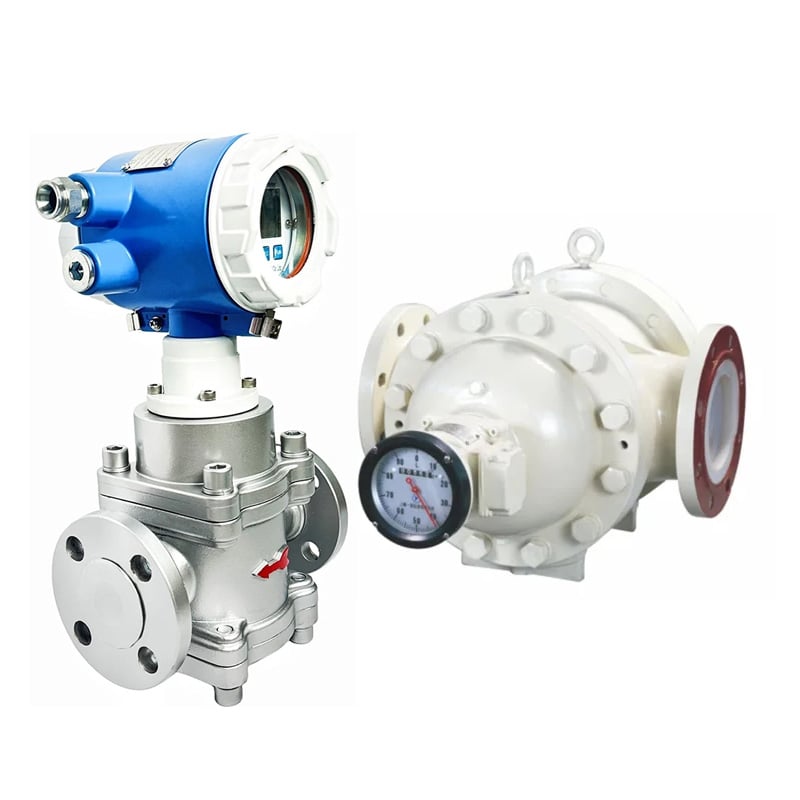
Bi-rotor Pozitif Deplasmanlı Akış Ölçer (MT-ABR)
- 0,1 %'ye kadar yüksek hassasiyet, 110 bar'a (1595 psi) kadar yüksek proses basıncı
- Son derece uzun hizmet ömrü, ekonomik düşük bakım
- Düşük sesle çalışırken kararlı
- İyi anti-parazit performansı ve uzun hizmet ömrü
- Viskozite değişikliklerine güçlü uygulanabilirlik

Düşük Akışlı Pozitif Deplasmanlı Dişli Akış Ölçer MT-GF
- 0,6 L/H'den düşük akışlı sıvılar için tasarlanmıştır
- Yüksek viskoziteli sıvı ölçümü için tasarlanmıştır; şurup, erimiş asfalt ve bal gibi zorlu ortamları güvenilir doğrulukla işler
- 0,5%'ye kadar hassasiyetle yüksek hassasiyetli ölçüm
- 150:1 wide turndown ratio
Coriolis Akış Ölçerler
Çalışma Prensibi: Measures mass flow directly by detecting the Coriolis force generated as fuel flows through vibrating tubes.
Avantajlar:
- Measures true mass flow independent of temperature or pressure
- High accuracy (±0.1–0.2%)
- Can measure density and temperature simultaneously Sınırlamalar:
- Daha yüksek başlangıç maliyeti
- Sensitive to vibration in large pipelines
En iyisi: Precision fuel dosing, engine testing, and high-value applications involving various liquid or gaseous fuels.
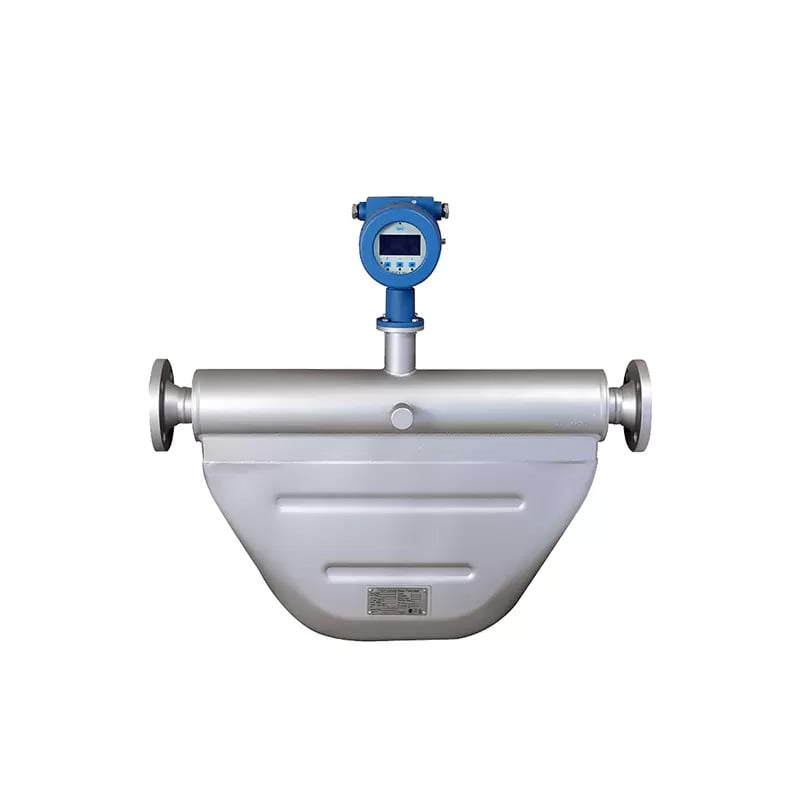
Coriolis Kütle Akış Ölçer W Şekli (MTD-ACMW)
- 0,1 %'ye kadar yüksek doğruluk, İyi güvenilirlik
- İyi sıfır kararlılık ve anti-parazit performansı
- Hareketli parça yok, bakım gerektirmez

Coriolis Kütle Akış Ölçer / Kontrol Cihazı MTL20FE
- Düşük akışlı gaz / sıvı ölçümü için tasarlanmıştır.
- Yüksek hassasiyet, iyi tekrarlanabilirlik. Sıvılar için ölçüm doğruluğu ± 0,25%'ye ulaşabilir; gazlar için ölçüm doğruluğu ± 0,5%'ye ulaşabilir.
- Kısma Oranı: Dijital kütle akış kontrolörü için 50:1; dijital kütle akış ölçer için 100:1.
- Tepki Süresi: kütle akış kontrolörü <0,2s; kütle akış ölçer <0,1s
- Akış hızını düzenlemek için entegre PID kontrolörü.
Termal Kütle Akış Ölçerler
Çalışma Prensibi: Measures gas mass flow based on the heat dissipation rate as fuel gas passes over a heated sensor.
Avantajlar:
- Ideal for measuring low-flow or clean gas fuels
- Provides direct mass flow measurement without pressure or temperature compensation Sınırlamalar:
- Not suitable for liquids
- Performance can be affected by humidity or particles in the gas
En iyisi: Natural gas, propane, and hydrogen flow measurement.

Patlamaya dayanıklı Termal Kütle Akış Ölçer (MT212x-Ex)
- Patlamaya dayanıklılık sınıfı: Ex db IIC T6 Gb / Ex tb IIIC T80°CDb.
- DN20 ile DN1000 arasındaki çaplara sahip borular için uygundur.
- Ultra geniş 1:2500 kısma oranı, ölçüm aralığı 0,1 Nm/s ila 250 Nm/s arasındadır.
- Tam dijital sinyal işleme, daha yüksek doğruluk, uzun vadeli kararlılık.
- Tamamen izole edilmiş elektrik yapısı, alan bozulmalarını tamamen filtreleyebilir.

Termal Gaz Kütle Akış Ölçer / Kontrol Cihazı (MTL20FD)
- Düşük akışlı gaz ölçümü için tasarlanmıştır.
- Kısma Oranı: Dijital kütle akış kontrolörü için 50:1; dijital kütle akış ölçer için 100:1.
- Tepki Süresi: kütle akış kontrolörü <0,2s; kütle akış ölçer <0,1s
- Akış hızını düzenlemek için entegre PID kontrolörü
Türbin Akış Ölçerler
Çalışma Prensibi: Uses the rotation speed of a turbine blade to determine the volumetric flow rate.
Avantajlar:
- Good accuracy at medium to high flow rates
- Compact and cost-effective Sınırlamalar:
- Sensitive to viscosity changes
- Requires stable, clean fuel
En iyisi: Gasoline, kerosene, or aviation fuel under clean conditions.
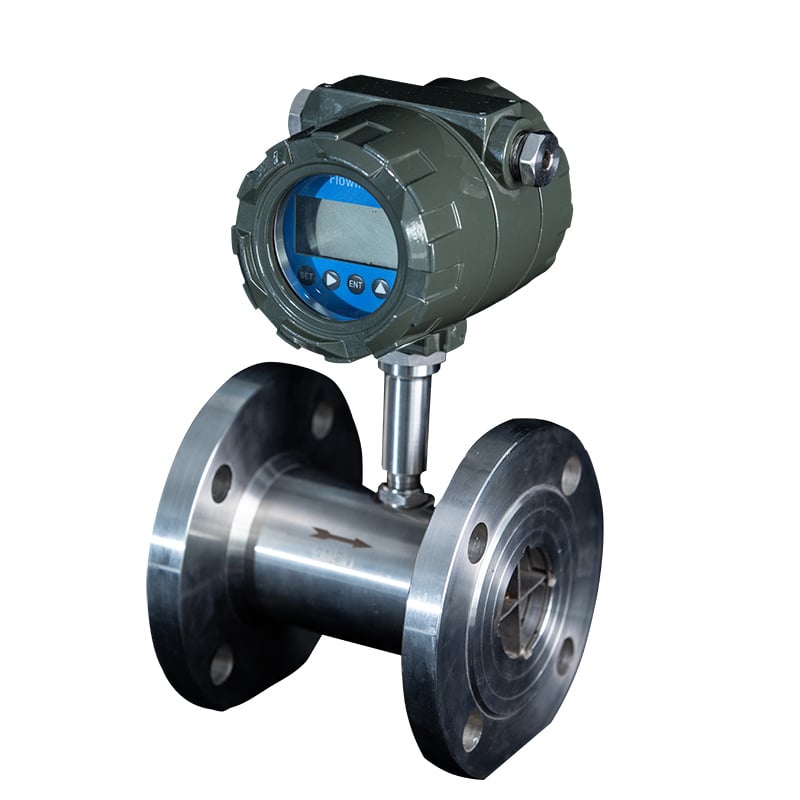
Yüksek Hassasiyetli Sıvı Türbin Akış Ölçer (LWGYMT-AJWL)
- İyi tekrarlanabilirlik ile ±0,2 %'ye kadar yüksek doğruluk.
- 1:20 kısma oranı.
- DN0.5 minimum delik boyutu ile yerden tasarruf sağlayan yapı.
- Renkler ve görünüm isteğe göre özelleştirilebilir
Ultrasonik Akış Ölçerler
Çalışma Prensibi: Measures flow velocity using the time difference between transmitted and received ultrasonic pulses.
Avantajlar:
- No moving parts, minimal maintenance
- Suitable for both liquid and gas fuels
- Can be installed non-intrusively (clamp-on type) Sınırlamalar:
- Accuracy depends on installation and pipe conditions
- Not ideal for very viscous or aerated fuels
En iyisi: Clean liquid fuels, pipeline monitoring, and large-diameter flow measurement.
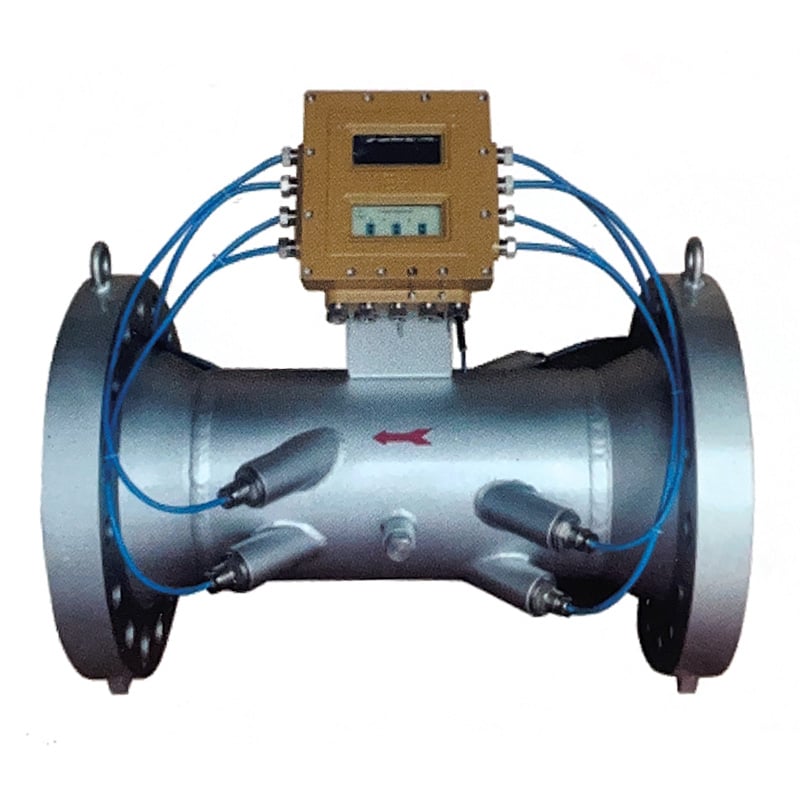
Yüksek Hassasiyetli Ultrasonik Gaz Akış Ölçer (MTS-LYNSB)
- 0,5%'ye kadar gaz için yüksek doğruluk
- Hareketli parça yok, basınç kaybı yok, hat tıkanıklığı yok
- Yağlama veya periyodik bakım yok
- Ölçüm gaz özelliklerinden etkilenmez
- 100:1 geniş kısma oranı
- Çift yönlü yetenek
How to Choose the Right Fuel Flow Meter
Selecting the proper fuel flow meter depends on the type of fuel, flow conditions, accuracy requirements, and installation environment. Below are key factors to consider:
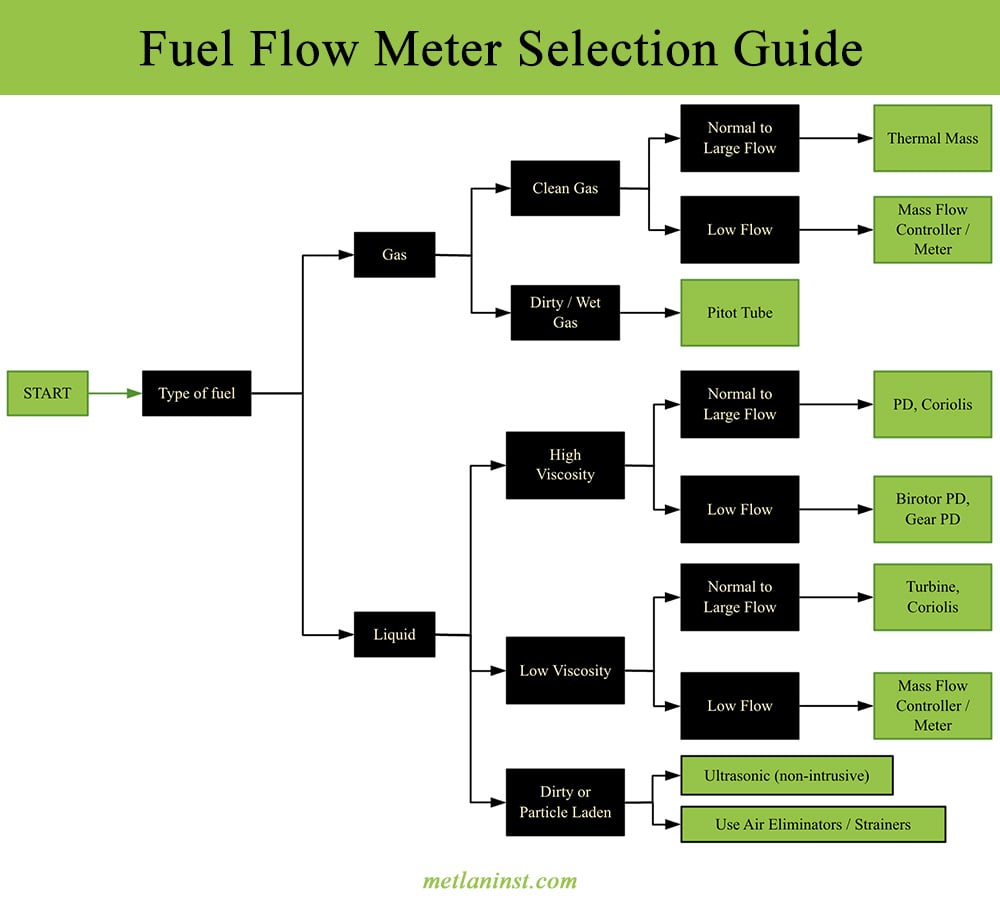
Fuel Type and Properties
Identify whether you are measuring liquid or gas fuel, its viscosity, density, and temperature range.
- For viscous liquids (diesel, oil) → choose Pozitif Deplasman veya Coriolis meters.
- For light liquids (gasoline, kerosene) → Türbin veya Coriolis meters work well.
- For gas fuels (natural gas, hydrogen) → Termal Kütle veya Ultrasonik meters are preferred.
Measurement Range and Accuracy
Define the required flow range and precision level.
- Laboratory and testing setups require ±0.2% or better accuracy (Coriolis, PD).
- Industrial transfer applications may allow ±1% accuracy (Thermal Mass, Turbine).
Pressure and Temperature Conditions
High-pressure or high-temperature systems require robust sensors and materials resistant to corrosion and thermal stress. Stainless steel or specialized alloys are typically used.
Maintenance and Installation
For remote or continuous operations, select meters with düşük bakım ve digital output compatibility (e.g., 4–20 mA, RS485, or Modbus).
Clamp-on ultrasonic meters can be ideal when non-intrusive installation is required.
Cost and Lifecycle
Consider total ownership cost, not just the purchase price. A higher initial investment in a Coriolis or PD meter may yield long-term savings through accuracy, reduced downtime, and energy efficiency.
Fuel Flow Meter Selection Guide
| Selection Factor | Key Considerations | Recommended Flow Meter Types | Typical Fuel Examples |
|---|---|---|---|
| Fuel Phase | Determine whether the fuel is liquid veya gas. | – Liquid: Positive Displacement, Coriolis, Turbine – Gas: Thermal Mass, Ultrasonic | Liquid fuels: Diesel, Gasoline, Jet Fuel Gas fuels: Natural Gas, Propane, Hydrogen |
| Viskozite | High-viscosity fuels require meters that handle thick, slow-moving fluids. | – High viscosity: PD, Coriolis – Low viscosity: Turbine, Coriolis | Diesel, Heavy Oil → PD/Coriolis Gasoline, Kerosene → Turbine/Coriolis |
| Accuracy Requirement | Define precision needed for your process (e.g., testing vs. monitoring). | – High accuracy (±0.2%): Coriolis, PD – Medium (±0.5%–1%): Turbine | Engine testing → Coriolis, PD, Fuel transfer → PD/Turbine |
| Cleanliness / Particle Content | Dirty or particle-laden fuels can cause mechanical wear. | – Clean fuels: Turbine, Coriolis – Dirty fuels: Ultrasonic (non-intrusive) | Biodiesel (filtered) → PD Heavy oil with impurities → Ultrasonic |
| Budget / Lifecycle Cost | Consider total cost of ownership (accuracy, maintenance, calibration). | – Low-cost: Turbine – Mid-range: PD – Premium: Coriolis | Cost-sensitive sites → Turbine Long-term precision → Coriolis |
Applications of Fuel Flow Meters
Fuel flow meters are essential in multiple sectors:
- Automotive and Marine Engines: Real-time fuel consumption monitoring and efficiency analysis.
- Aviation: Precise jet fuel measurement for safety and performance.
- Power Generation: Monitoring fuel supply to turbines and boilers.
- Oil & Gas Industry: Custody transfer, blending, and leak detection.
- Laboratory and Research: Calibration, performance testing, and emission studies.
Accurate measurement not only improves operational efficiency but also helps meet environmental and safety regulations.
A yakıt akış ölçer is more than just a measuring device—it is a critical component that ensures energy efficiency, process control, and cost management. Whether dealing with diesel, gasoline, natural gas, or hydrogen, selecting the right flow meter type can significantly impact performance and reliability.

